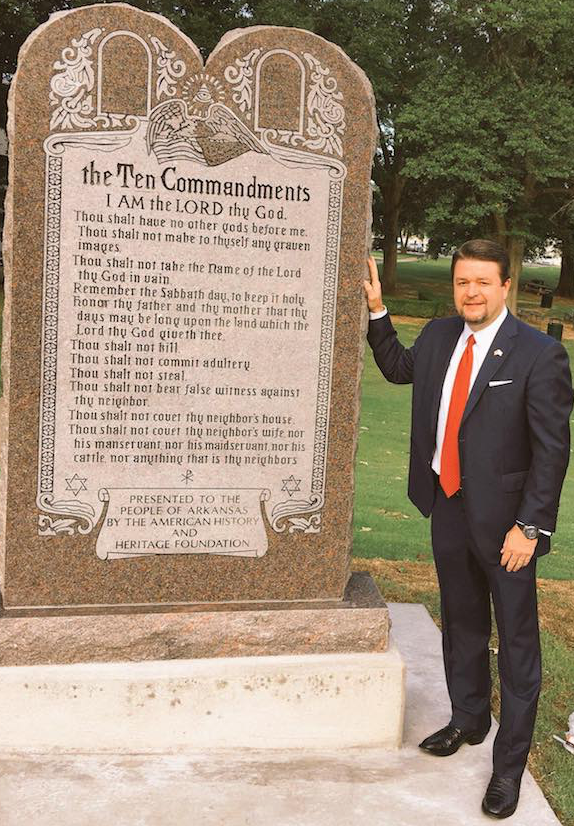On July 2nd, 2025, FFRF and a coalition filed a lawsuit on behalf of a group of sixteen multifaith and nonreligious Texas families to block a state law requiring all public elementary and secondary schools to display the Ten Commandments in every classroom.
Texas Senate Bill 10 requires all public elementary and secondary schools statewide to display either a “durable poster” or “framed copy” of the Ten Commandments in a conspicuous location within every classroom. The law specifies a particular Protestant version of the Ten Commandments.
The plaintiffs include Jewish, Christian, Baptist, nonreligious, Hindu, and Unitarian families. The complaint argues that SB 10 violates both the Establishment Clause and Free Exercise Clause of the First Amendment to the U.S. Constitution, which protects the separation of church and state and guarantees religious freedom.
The lawsuit was filed in the U.S. District Court for the Western District of Texas. The plaintiffs are represented by the ACLU, the ACLU of Texas, American United for Separation of Church & State, Simpson Thacher & Bartlett LLP, and FFRF. Legal Director Patrick Elliot, Senior Litigation Counsel Sam Grover, and Staff Attorney Nancy Noet are serving as co-counsel.


 The Freedom From Religion Foundation and a coalition of plaintiffs filed a lawsuit on May 23, 2018, against Arkansas Secretary of State Mark Martin seeking the removal of a massive Ten Commandments structure from the grounds of the Arkansas State Capitol.
The Freedom From Religion Foundation and a coalition of plaintiffs filed a lawsuit on May 23, 2018, against Arkansas Secretary of State Mark Martin seeking the removal of a massive Ten Commandments structure from the grounds of the Arkansas State Capitol.